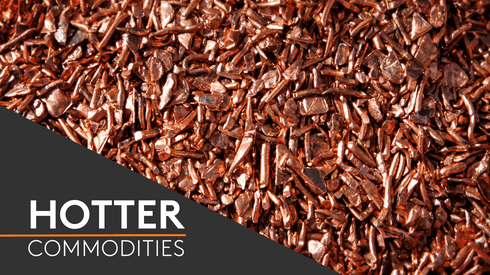“The blending operation will receive complex concentrates with high arsenic content. The scale of the blending capacity is not set yet. Jiangxi Copper has no such overseas blending operation so it is a new move for us,” a Jiangxi Copper official told Metal Bulletin.
A senior official with Jiangxi Copper who has previous experience in concentrates blending business recently visited Malaysia for one and a half months, a trader source said.
The field trip aimed to explore the potential of building a copper, zinc and lead concentrates blending facility in Port Klang, the source added.
Under China’s import rules, it is illegal to import copper concentrates containing more than 0.5% arsenic into China. As such, concentrates with a higher arsenic content must be blended with other cleaner feeds prior to import.
Since early last year, the Chinese government had been said to be considering relaxing its inspections of heavy metals concentrate imports, yet multiple sources said no progress has been made and the import restriction is still in place.
In recent years, trading houses including Trafigura, Louis Dreyfus, Werco and Glencore have made significant investments in blending operations in Asian ports including Taiwan, South Korea and Malaysia.
Meanwhile, Daye Nonferrous, another major copper smelter in China, acquired Malaysian company Qiansheng in Port Klang to blend concentrates in 2016.
The expansion of blending operations in Southeast Asian countries could mean more inflows of concentrates cargoes to the area.
Jiangxi Copper also mulls SE Asia scrap processing operation
In addition to the concentrates blending business, Jiangxi Copper is planning to establish scrap dismantling and processing facilities in Southeast Asian countries, the company source said.
The location of the scrap processing site has not yet been confirmed because the head office is waiting for more information from the research teams, the source added.
A copper analyst who recently paid visits to one of Jiangxi Copper’s scrap processing plant in China said the operation has recently imported several thousand tonnes of scrap to process until second half of this year.
“They are still considering whether they should turn more to domestic copper scrap or set up a new plant abroad to process overseas scrap,” the analyst told Metal Bulletin.
China has stepped up its pollution curbs to restrict imports of scrap, including its latest move to implement a 30-day suspension of its Chinese Certification and Inspection Group (CCIC) North America division, which essentially froze all US non-ferrous scrap trading with the country.
A month ago, China announced a complete ban on imports of category-7 copper scrap which will be implemented by the end of this year.
The restrictions translated into stockpiles building up at processors in neighboring countries, as well as investment to relocate processing facilities to Southeast Asia.
Some of these small and medium scaled scrap processing factories in Southeast Asia are expected to turn scrap into blister copper which will be imported into China.
A separate trader source who talks directly to Jiangxi Copper told Metal Bulletin its subsidiary is mulling adding a 50,000 tonnes per year blister copper and anode production capacity in Malaysia.
“It is still at a preliminary stage. The details are not disclosed yet. It is likely to be blister copper production using a feed of complex concentrates. The company is exploring various options in Malaysia,” the source said.
Jiangxi Copper declined to comment officially on the plans.
Additional reporting by Archie Hunter in Shanghai




